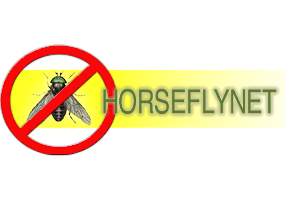-
Botulism Beware
By Jess Hallas-Kilcoyne

Commonly found in soil, decaying animal carcasses, and, sometimes, decaying plant material, Clostridium botulinum is the bacterium responsible for producing the toxins that cause botulism. These powerful toxins prevent the release of neurotransmitters that control muscle contractions, resulting in weakness and, often, paralysis. Botulism in horses, as in humans, is frequently fatal.
Causes: The majority of botulism cases in horses occur as a result of the ingestion of feed or water that is contaminated, usually by the carcasses of small animals such as rodents or birds. Improperly preserved or spoiled haylage, or hay silage, is another common cause of equine botulism.
While far less common, botulism can also result from a wound or surgical site that becomes contaminated with Clostridium botulinum.
Finally, botulism can be caused by the toxins that are released when ingested spores of Clostridium botulinum are activated in the horse’s intestinal tract. It’s this type of botulism that is thought to cause Shaker Foal Syndrome, a usually fatal disease that affects young foals.
Clinical Signs: Botulism in horses is characterized by muscle weakness progressing to inability to stand and, eventually, paralysis. Other symptoms include muscle tremors, loss of control over the tongue, inability to swallow, and loss of tail tone. Unless humanely euthanized, death usually results from the paralysis of the respiratory muscles, causing the horse to suffocate.
Treatment: An anti-toxin for botulism is available, but it is very expensive. If administered after the toxin has already bound to the nerves in the muscles, the nerves must repair themselves by growing new nerve endings, a process that can take weeks.
Affected horses often need to be hospitalized so they can receive intravenous fluids and round-the-clock care, which usually involves feeding via stomach tube.
Prevention: A vaccine for the type B botulinum toxin – the strain most frequently linked to cases of botulism in horses in North America – exists, and is highly recommended if your horse lives in a high risk area or if you feed haylage. Previously unvaccinated horses receive an initial series of three monthly vaccinations followed by annual boosters.
This article was reprinted with permission from Horse Community Journals Inc., publishers of Canadian Horse Journal and HORSEJournals.com. Visit www.HORSEJournals.com for the latest Equinews, blogs, horses for sale, and hundreds of informative articles on horse care, training, and more.
HorseFlyNet® is happy to offer Hay-Shade™ as a method of protecting hay from sun and birds
Botulism Beware
Call Us at (910) 725-2115 or Email Us at info@horseflynet.com
Horse Fly Net
This see-through breathable screen will last for years. It is made of polyester vinyl coated and heat sealed on the edges with brass grommets about every foot. It has no chemicals added. Our HorseFlyNets only cost approximately $2.00 a square foot for smaller sizes and less for larger. Our product is woven and manufactured in the USA.
HorseFlyNet®
Southern Pines, NC
(910) 725-2115
info@horseflynet.com
